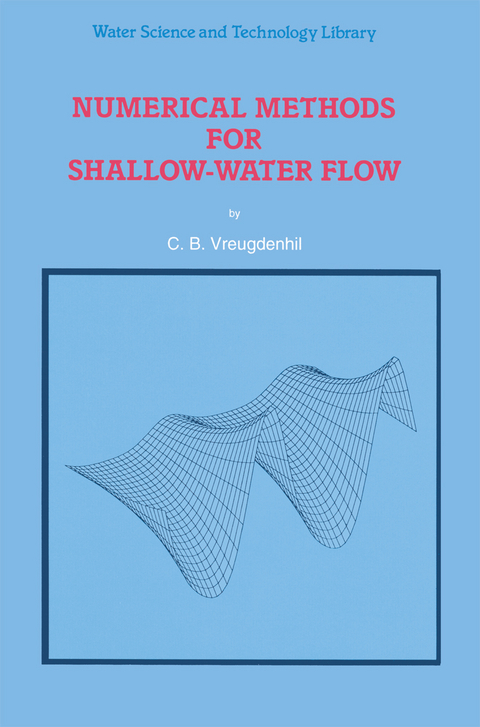
Numerical Methods for Shallow-Water Flow
Seiten
2010
|
Softcover reprint of hardcover 1st ed. 1995
Springer (Verlag)
978-90-481-4472-3 (ISBN)
Springer (Verlag)
978-90-481-4472-3 (ISBN)
A wide variety of problems are associated with the flow of shallow water, such as atmospheric flows, tides, storm surges, river and coastal flows, lake flows, tsunamis. The first part of the book summarizes the basic physics of shallow-water flow needed to use numerical methods under various conditions.
A wide variety of problems are associated with the flow of shallow water, such as atmospheric flows, tides, storm surges, river and coastal flows, lake flows, tsunamis. Numerical simulation is an effective tool in solving them and a great variety of numerical methods are available. The first part of the book summarizes the basic physics of shallow-water flow needed to use numerical methods under various conditions. The second part gives an overview of possible numerical methods, together with their stability and accuracy properties as well as with an assessment of their performance under various conditions. This enables the reader to select a method for particular applications. Correct treatment of boundary conditions (often neglected) is emphasized. The major part of the book is about two-dimensional shallow-water equations but a discussion of the 3-D form is included.
The book is intended for researchers and users of shallow-water models in oceanographic and meteorological institutes, hydraulic engineering and consulting. It also provides a major source of information for applied and numerical mathematicians.
A wide variety of problems are associated with the flow of shallow water, such as atmospheric flows, tides, storm surges, river and coastal flows, lake flows, tsunamis. Numerical simulation is an effective tool in solving them and a great variety of numerical methods are available. The first part of the book summarizes the basic physics of shallow-water flow needed to use numerical methods under various conditions. The second part gives an overview of possible numerical methods, together with their stability and accuracy properties as well as with an assessment of their performance under various conditions. This enables the reader to select a method for particular applications. Correct treatment of boundary conditions (often neglected) is emphasized. The major part of the book is about two-dimensional shallow-water equations but a discussion of the 3-D form is included.
The book is intended for researchers and users of shallow-water models in oceanographic and meteorological institutes, hydraulic engineering and consulting. It also provides a major source of information for applied and numerical mathematicians.
1. Shallow-water flows.- 2. Equations.- 3. Some properties.- 4. Behaviour of solutions.- 5. Boundary conditions.- 6. Discretization in space.- 7. Effects of space discretization on wave propagation.- 8. Time integration methods.- 9. Effect of time discretization on wave propagation.- 10. Numerical treatment of boundary conditions.- 11. Three-dimensional shallow-water flow.- List of notation.- References.
| Erscheint lt. Verlag | 8.12.2010 |
|---|---|
| Reihe/Serie | Water Science and Technology Library ; 13 |
| Zusatzinfo | X, 262 p. |
| Verlagsort | Dordrecht |
| Sprache | englisch |
| Maße | 160 x 240 mm |
| Themenwelt | Mathematik / Informatik ► Mathematik ► Analysis |
| Naturwissenschaften ► Geowissenschaften ► Geologie | |
| Naturwissenschaften ► Geowissenschaften ► Hydrologie / Ozeanografie | |
| Naturwissenschaften ► Geowissenschaften ► Meteorologie / Klimatologie | |
| Naturwissenschaften ► Physik / Astronomie ► Festkörperphysik | |
| Naturwissenschaften ► Physik / Astronomie ► Thermodynamik | |
| Technik ► Bauwesen | |
| ISBN-10 | 90-481-4472-8 / 9048144728 |
| ISBN-13 | 978-90-481-4472-3 / 9789048144723 |
| Zustand | Neuware |
| Informationen gemäß Produktsicherheitsverordnung (GPSR) | |
| Haben Sie eine Frage zum Produkt? |
Mehr entdecken
aus dem Bereich
aus dem Bereich
Buch | Softcover (2024)
De Gruyter Oldenbourg (Verlag)
CHF 83,90


